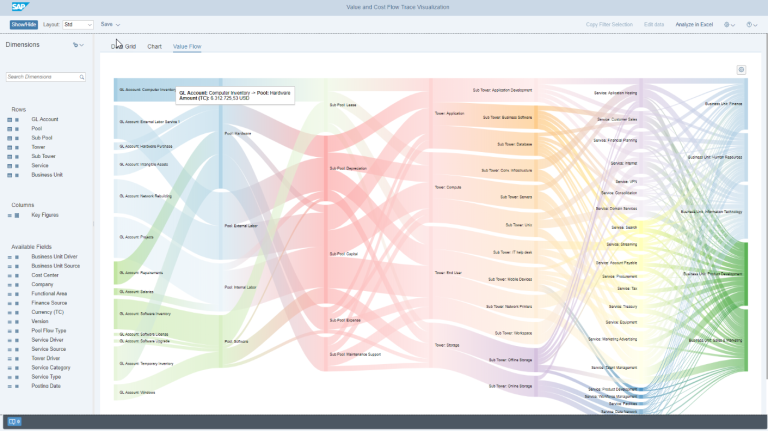Will IT and agencies be left without generalists?
Hello! I am Asya Markevich, HRD digital production NEXT. I’ve been working at the agency for 5 years now, and since then our staff has grown from 80 to 300+ people. Today I want to talk about the fact that there are fewer and fewer generalists (by the way, who are they?). And this is a problem for the entire custom development market. And our team leader Dmitry Alexandrov will help me with this.

Let's start by putting things in order.
Understanding the terms
Generalist is not a generally accepted term, but it is used to describe those who got into IT at the dawn of the advent of popular tools, that is, 25-30 years ago. Today, these specialists occupy the positions of technical directors, or at least team leads. What sets them apart from the current generation of developers is the fact that they started their careers when most tools were undeveloped and some technologies had not even emerged yet.
Generalists managed to work with more tools in the first 3-5 years of their careers than those who entered the profession after 2015. Accordingly, their understanding of IT is more complete.
Today, developers have become increasingly focused on narrow specialization. Over the years, technology has increased. They have become overgrown with environments and versions, and require more and more time to master.
As a result, there are fewer and fewer generalists on the market.
Why are generalists needed?
Generalist improves the quality of project development
For a generalist, his section of the project is not a separate stage, but part of the whole. He understands how his decisions will affect the entire project. This is achieved due to the fact that such a specialist has an understanding of all the tools involved in the project. And not from Google and YouTube, but from real experience of use. Even if the experience is small.
Generalists can identify and fix the problem faster
If a specialist understands the features of different technologies and tools, he will quickly identify the source of the problem and figure out how to solve it.
Generalists are especially useful in startups where resources are limited. And also at the analytics stage, when you need to evaluate the problem and understand which technologies are suitable for solving the business problem.
Will there really be no generalists soon?
Today's generalists are people who received a basic IT education and started in the profession when there were fewer technologies and tools, which means there were more opportunities to fit them into their heads and apply them in their work. There are hardly any generalists under 40 years old.
Who comes to IT today
But today the background of people who start in the profession is most often different. The entry threshold has been lowered, plus add all kinds of IT courses, after which people also find work.

And this is not an attack on those who come to IT today, no matter what background they have. Rather, the question is for the market itself, which has become different and brought with it fundamental changes in terms of the entry threshold.
Here's an example: let's say a person trained as a React developer, gets a job in a company and writes code. If he learns something new, it is only within the framework of the technology stack that the team uses. He builds competencies in a narrow niche.
If this frontender starts changing jobs, he will look for positions with relevant experience requirements. At what point will this React developer have the opportunity to dive into areas related to his specialty? It may not come at all. As a result, a person remains in a narrow specialization. This is neither bad nor good. But this means that he is unlikely to become a generalist.
I am not saying that there will be no generalists at all. It’s just that current trends and the situation in the personnel market are not in favor of expanding competencies.
How the problem with generalists relates to the custom development market
The agency business does not allow you to have an overstaffed staff, and the downtime of specialists affects profitability. In addition, clients from different fields come to the agency. Such a business needs generalists on the team, and this role is usually filled by the technical director.
The agency is interested in universal soldiers. For example, we do not have a division into business and systems analysts, because we are not sure that there will be enough workload and working hours for specialists of both types. Therefore, we are looking for those on the market who are able to complete both tasks. We also love developers who can work with different tools: React and Vue.js, for example. If we talk about smaller agencies, they rarely hire specialists and give preference to full stacks. The latter are not generalists, but they are closer to them than some Laravel developer.
If there are no generalists, work on the project will become less efficient and more expensive: lack of knowledge leads to more errors and rework. As a result, this affects the economics of the project: its cost will increase for both the agency and the client. A fellow team leader, Dmitry Alexandrov, shared his opinion with me:
Quite often there are situations when people from different specialties have difficulty understanding each other. I wouldn’t say that this greatly interferes with work, but there is definitely discomfort and a decrease in the quality of the result. This mainly happens to narrow specialists: backenders and front-ends, managers and admins/back-ends/front-ends (direct performers). Team leads, QA and analysts are more knowledgeable in all processes, although their knowledge is quite specific.
In an environment where there will be fewer generalists overall, the agency's access to such specialists will decrease even further. After all, we compete not only with other agencies, but also with product companies. Moreover, due to the extended time, the process occurs unnoticed.

What to do about it?
The first thing that comes to mind is to raise generalists from within. People somehow still become team leads and technical leaders. And not all of them are 40+ years old.
But for the agency this is a difficult path associated with a high level of risk. In addition, it is unlikely that it will be possible to raise generalists. The initial conditions for entering the sphere are no longer the same. And IT has long become immense.
The second option is to come to terms with it and raise modern generalists—T-shapers.
Modern generalists – T-shapers
T-shapers are people who have a narrow specialization, but at the same time have general knowledge of their field. Such specialists are difficult to find. But they can be grown inside.
How are they different from generalists? You can select the following list. It is approximate:
They came to IT later than the generalists,
T-shapers started with a narrow specialization
After they became experts in it, T-shapers decided to expand the map of their competencies.

How to grow them inside?
First, agency staff time is split between projects and is often in short supply.
Secondly, where are the guarantees that such investments will return to you? From a business point of view, training a person in competencies that do not relate to his direct responsibilities is not profitable. The agency often becomes a sieve for personnel. And don’t forget about the risk that you train a person and he leaves for another company.
But it is not all that bad.
Many companies—both product companies and agencies—practice staff rotation, transferring specialists from project to project. This reduces the risk of burnout and gives the employee the opportunity to explore and try new technologies or a new role.
The arguments that there will soon be no generalists, and this will affect the agency business, seem logical to me. But at the same time, I cannot imagine a situation in which a person focuses on only one tool or technology throughout his entire professional career. People get tired of doing the same thing.
Ideally, a company needs to learn to manage the growth process of T-shapers.
A systematic approach will lead to the fact that there will be many such people and the departure of one will not become critical for the business. And the environment itself will attract people to the company who are interested in development and are already on the path to expanding their competencies.
Do you feel a lack of so-called generalists?





